Exploring the Hybrid Landscape: From Basics to Budget-Friendly Options
-
Introduction to Hybrid Cars: An Eco-Friendly Revolution
Eco-Friendly Mobility: Hybrid cars mark a revolutionary stride in the automotive industry, seamlessly blending traditional internal combustion engines with electric propulsion systems. These vehicles aim to strike a balance between fuel efficiency and reduced environmental impact. Understanding the fundamentals of hybrid technology is essential for those considering a shift towards eco-friendly mobility solutions.
-
What Are Hybrid Cars? Unveiling the Hybrid Powertrain
Dual Power Sources: Hybrid cars operate on a dual powertrain, integrating both an internal combustion engine and an electric motor. The synergy between these power sources allows for improved fuel efficiency, reduced emissions, and the ability to operate on electric power at lower speeds. The two primary types of hybrid systems are parallel hybrids, where both the engine and motor can directly power the wheels, and series hybrids, where the engine solely charges the electric motor.
Regenerative Braking: An integral feature of hybrid cars is regenerative braking, which converts kinetic energy during braking into electric energy to recharge the vehicle’s battery. This innovation enhances energy efficiency and contributes to prolonged battery life, making hybrids a sustainable choice for eco-conscious drivers.
-
How Hybrid Cars Work: Decoding the Mechanism
Electric Assistance and Power Distribution: In hybrid cars, the electric motor provides assistance to the internal combustion engine during acceleration, reducing the load on the engine and optimizing fuel consumption. Advanced control systems seamlessly switch between electric and gasoline power based on driving conditions, ensuring an optimal balance between performance and efficiency. Some hybrids also offer all-electric modes for short distances, further reducing reliance on traditional fuel sources.
Battery Management: Hybrid cars incorporate sophisticated battery management systems to regulate the charge and discharge cycles of the electric battery. Lithium-ion batteries are commonly used in modern hybrids due to their high energy density and efficiency. The battery captures and stores energy during deceleration and braking, ensuring a continuous supply of electric power to support the vehicle’s propulsion.
-
Strong Hybrid Cars in India: Melding Performance with Efficiency
Toyota Camry Hybrid: Toyota Camry Hybrid stands as a strong contender in the Indian market, showcasing the prowess of strong hybrid technology. This sedan seamlessly transitions between its 2.5-liter gasoline engine and electric motor, delivering an impressive blend of power and fuel efficiency. The Camry Hybrid prioritizes electric driving at low speeds and during deceleration, contributing to a greener driving experience.
Lexus ES 300h: The luxury segment embraces strong hybrid technology with the Lexus ES 300h. This premium sedan combines a 2.5-liter engine with an electric motor, offering a powerful yet refined driving experience. The ES 300h prioritizes electric propulsion in urban settings, emphasizing efficiency without compromising on performance and luxury.
-
Cheapest Hybrid Cars in India: Budget-Friendly Options
Maruti Suzuki Baleno Smart Hybrid: Maruti Suzuki introduces affordable hybrid technology with the Baleno Smart Hybrid variant. Featuring a mild hybrid system, this hatchback incorporates an integrated starter generator (ISG) and a dual battery setup. The Smart Hybrid technology enhances fuel efficiency by providing torque assistance during acceleration and regenerative braking.
Mahindra eVerito: For those inclined towards all-electric mobility with hybrid undertones, the Mahindra eVerito presents an intriguing option. This sedan operates on a fully electric drivetrain but incorporates regenerative braking for energy recovery. The eVerito caters to eco-conscious urban commuters, offering an eco-friendly alternative with minimal tailpipe emissions.
-
Tata Hybrid Cars in India: Pioneering Green Innovation
Tata Nexon EV: While Tata Motors delves into electric mobility, the Nexon EV stands out as an electric SUV rather than a traditional hybrid. The Nexon EV embraces pure electric power, delivering an impressive range on a single charge. Tata Motors’ commitment to sustainable transportation reflects in their electric offerings, contributing to the paradigm shift towards cleaner and greener automotive solutions.
-
Future Prospects and Government Initiatives: Fostering Hybrid Adoption
Government Incentives: To accelerate the adoption of hybrid and electric vehicles in India, the government has introduced various incentives and subsidies. These include reduced Goods and Services Tax (GST) rates, income tax benefits, and financial incentives for manufacturers. Such initiatives aim to make eco-friendly vehicles more accessible to a broader spectrum of consumers.
Future Developments: As technology continues to evolve, the future of hybrid cars in India holds the promise of further advancements. Manufacturers are likely to explore innovative battery technologies, enhanced regenerative systems, and improved electric propulsion. With a growing emphasis on environmental sustainability, the automotive landscape in India is poised for a transformative shift towards cleaner and more efficient mobility solutions.
-
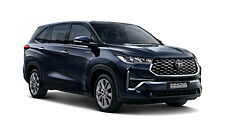
Toyota Innova Hycross
Rs. 25.30 LakhAvg. Ex-Showroom price -

Maruti Suzuki Grand Vitara
Rs. 10.70 LakhAvg. Ex-Showroom price -
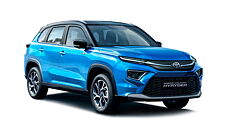
Toyota Urban Cruiser Hyryder
Rs. 10.86 LakhAvg. Ex-Showroom price -
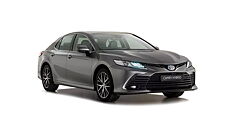
Toyota Camry
Rs. 46.17 LakhAvg. Ex-Showroom price -
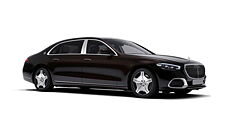
Mercedes-Benz Maybach S-Class
Rs. 2.69 CroreAvg. Ex-Showroom price -
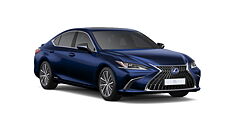
Lexus ES
Rs. 63.05 LakhAvg. Ex-Showroom price -

Mercedes-Benz GLE
Rs. 96.40 LakhAvg. Ex-Showroom price -
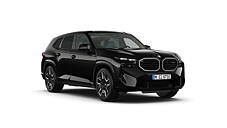
BMW XM
Rs. 2.60 CroreAvg. Ex-Showroom price -
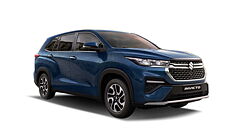
Maruti Suzuki Invicto
Rs. 24.80 LakhAvg. Ex-Showroom price -
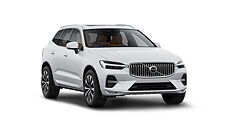
Volvo XC60
Rs. 67.85 LakhAvg. Ex-Showroom priceShow price in my city
Conclusion
Hybrid Horizon in India
The landscape of hybrid cars in India is marked by a diverse range of options catering to different preferences and budgets. From strong hybrids offering a blend of performance and efficiency to budget-friendly models introducing mild hybrid technology, consumers have an array of choices aligned with their eco-conscious aspirations. As government incentives and technological advancements continue to shape the automotive industry, the adoption of hybrid cars in India is set to grow, contributing to a greener and more sustainable future on the country’s roads.

